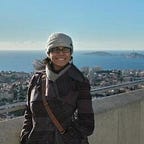Dr. Brian Cheng
Dr. Brian Cheng is currently a post-doctoral fellow at the Smithsonian Environmental Research Center where he studies how species interactions vary over biogeographic space in the marine environment. In fall 2017, he will begin a new position as an Assistant Professor at the University of Massachusetts, Amherst.
Dr. Brian Cheng was in the middle of his PhD at UC Davis studying the connection between climate change and biological invasions when I briefly met him as an undergraduate student. I re-discovered Brian during my Master’s at San Diego State University, where I saw him in photos with previous cohorts of ecologists during his Master’s at our alma mater. At the Bodega Marine Laboratory where I currently work, Brian’s greatest legacy — after his research — might be his organization of legendary social events still remembered today.
Yet between the rigorous science he conducts and the iconic socialite status he maintains, there remains a nebulous discomfort — an oftentimes intangible sense that his interactions with people, be it in person or on paper, are accompanied by a secondary internal evaluation that he is not privy to. “Minorities can all relate to the idea of standing out as culturally different than everyone else. It permeates every interaction. Every time I meet a new person, I wonder if they have a prejudice against me. You can’t escape the thought.” This uncertainty formed the bedrock of much of our discussion about representation in science, model minorities, and racial procrastination.
Throughout his career, it has never eluded Brian that he is oftentimes the only minority in the room. Echoing a sentiment I feel as an Indo-American ecologist, he shared that although Chinese Americans are “represented” in science, they are few and far between in the fields of evolutionary biology and ecology. An Ecological Society of America survey from 2005 showed that nearly 66% of their membership was Caucasian, only 2.6% were Asian, and less than 1% of the Asians surveyed were born in the United States. These statistics leave Brian asking, “What does it mean for Asians to be broadly “represented” within STEM but underrepresented within ecology or marine science?”
I was simply just trying to fit in, feel accepted, and avoid being called ‘china-man’.
Brian sometimes felt marginalized by claims that his Chinese heritage granted him ‘model minority status’. “The problem with stereotypes, even “positive” ones, is that they generalize and make unfounded assumptions about an entire group of people. When is that ever a good thing?” There is no evidence to suggest that Asian Americans have higher academic performance, and pressure to conform to these positive stereotypes can even reduce achievement in education and employment. A recent study even showed that Canadian job applicants with Asian names are often discriminated against during the recruitment process. Additionally, Asian Americans struggle with their identity (being Asian versus American) and tend to have fewer friends from racial/ethnic backgrounds different than their own, limiting their participation in their personal and educational communities.
The “model minority” stereotype is exacerbated by racial microaggressions — subtle, prejudicial exchanges that disparage minorities for belonging to a particular racial or ethnic group. Asian Americans often encounter such remarks from close friends and colleagues. “Throughout my life, I’ve been ‘complimented’ by the majority with comments like ‘You’re basically white’. As if that was the goal we minorities have been striving towards all along! In retrospect, I wasn’t trying to be ‘white’. I was simply just trying to fit in, feel accepted, and avoid being called ‘china-man’. Is that too much to ask?” Dismissing the experiences of Asian Americans because of this perceived benefit creates conflict among different ethnic groups and racial discrimination becomes more difficult to address.
Until recently, Brian did not engage with these microaggressions, worried they would distract from his scientific contributions. However, Brian now realizes that he was practicing racial procrastination (an allegation recently applied to President Obama) — only confronting his Chinese-American culture and accusations leveled against it when absolutely necessary. “For a long time, I wanted my career to be focused on scientific merit alone. Full stop. But now, I realize that ignoring bias and systemic inequality serves no one. It’s taken me a while, but I think I’ve found my voice in tackling these issues.”
Reductionist stereotypes have also deeply affected the way Brian plans to operate as a mentor and educator. In his lab and classroom, he hopes to foster a supportive community that acknowledges intersectionality, where challenges minority scientists encounter can be openly discussed, and ultimately brought to the attention of the broader university community. “Some schools have embraced the challenge of promoting diversity at student, faculty, and administrative levels, however this is not the case everywhere. There is much work to be done”. As a teacher and mentor, he intends to exemplify culturally diverse science and scientists, while building an inclusive community for students with different personalities and backgrounds.
The Prosaic Mosaic is a series highlighting diversity in science, you can learn more about it here.
Up Next:
- March 2017: Michelle Barboza, host of The Femmes of STEM podcast
Previously:
- January 2017: Dr. Morgan Kelly
- December 2016: Dr. Cristina Torres Duarte
- The Prosaic Mosaic: an Effort to Normalize Diversity in Science
